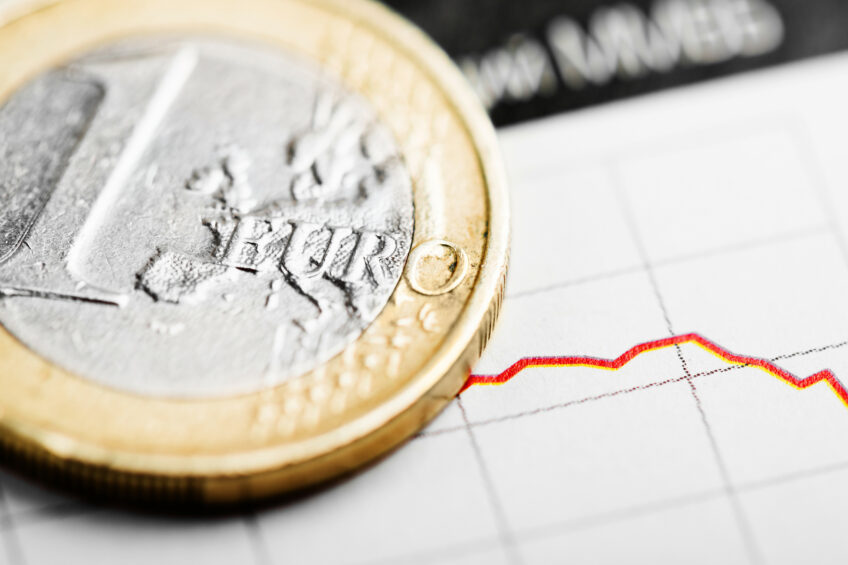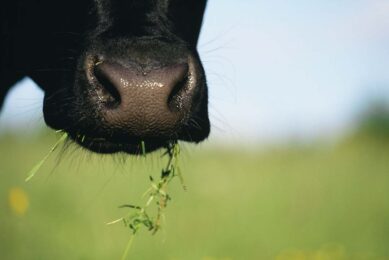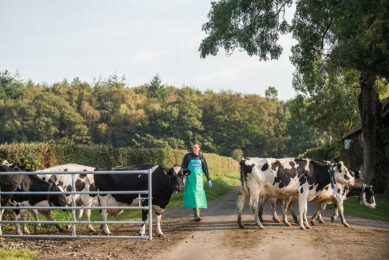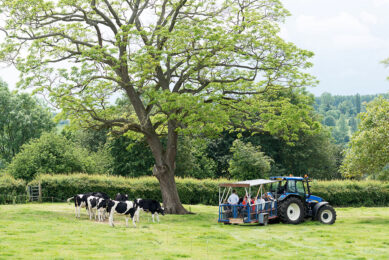Proposed CAP cut: Effect for dairy farmers

In late April, Euractiv hosted a high-level discussion on the future of the Common Agricultural Policy, where participants and attendees expressed their concerns over the cuts’ impact on European farmers.
The European Commission has proposed a new 7 year budget for the Common Agricultural Policy (CAP) of € 365 billion, which is 5% lower than the current budget. The level of ambition for the policy, though, remains high. Farmers are expected to continue to improve production systems in order to tackle climate change and protect the environment.
Dairy stakeholders respond
CAP represents nearly 40% of the EU budget, amounting to approximately € 59 billion each year. A 5% cut will likely have an enormous impact on producers, especially in the already volatile dairy sector. European farmers are already facing severe economic hardship, said Pekka Pesonen, Copa and Cogeca Secretary-General, in an interview after the talk. He pointed out that the economic hardship felt by farmers very much includes the EU dairy sector.

Realistic, not optimistic
“The European Commission’s plan to cut CAP funding, which includes a 4% reduction in farmers direct payments, will be a severe blow also for dairy farmers,” Mr Pesonen said. “Dairy markets are still recovering from the previous market crisis and skimmed milk powder stocks are high, which is putting downward pressure on the market. The last thing our dairy farmers need is another CAP direct support cut.” During the discussion, Tassos Haniotis, Director, DG AGRI, European Commission, said he’s realistic, not optimistic, about the CAP post-2020. Prices for agricultural commodities are lower and expected to stay lower, he said, and environmental and climate ambitions are higher.
We need a well-functioning EU Single Market
In a follow-up interview Anton Alexander, Secretary General of the European Dairy Association, said that the CAP is a key instrument for the dairy sector in that it supports and remunerates dairy farmers for their efforts. He believes it is vital to improving the environment and animal welfare. But he believes policymakers in Brussels should be doing more to support the sector. “The European dairy market is a highly competitive one – not least because of the high level of concentration in the retail sector in basically all EU Member States and of our full exposure to the global markets,” said Mr Alexander. “For boosting the competitiveness of the EU dairy sector, we need first of all a well-functioning EU Single Market across the Union.” “Over the last few years, policy makers in Brussels and at national level have not been helpful,” he continued. “Mandatory origin labelling, ‘nonsense’ nutrition labelling schemes are undermining the Single Market principle.”
Funding should go to real farmers
Part of Euractiv’s panel discussion focused on precisely where funding has gone in the past, with several speakers pointing out that much of CAP funding doesn’t actually support “real” farmers. “Today we have some Member States where there’s quite a lot of people who do not farm anymore, but they have entitlements in their pocket and they find a way to get money for entitlements and this is not the aim of the Common Agricultural Policy,” said Herbert Dorfmann MEP, Rapportuer for The future of food and farming, European Parliament. Entitlements, he continued, should be put into the hands of people who really farm. Mr Haniotis agreed, pointing out that 1% of farmers receive 15% of support. “This is an ongoing debate between the first and second pillar,” he said. “The first and second pillars are supposed to complement one another, not compete.” On this matter, Paulo Gouveia, Chief Policy Advisor, Copa and Cogeca, also agreed. “We are not supportive of speculation investments,” he said.
During Euractiv’s high-level talk, one of the big discussion points was that a cut to the CAP would lead to cuts in research and innovation and impact efforts made towards more sustainable production. “The aim is to have a future of more sustainable agriculture,” said Alberto Arroya Schnell, International Union for Conservation of Nature. “This will not happen with less money.” “The intentions are good but if you don’t have the resources they will stay just intentions,” agreed Joao Pacheco, Senior Fellow, Farm Europe.
Investment for research and innovation announced
In a speech at the AgriResearch Conference in Brussels on 2 May, Commissioner Phil Hogan announced future funding for research and innovation in agriculture. “I am delighted to inform you that a specific amount of € 10 billion is foreseen under Horizon Europe to support research and innovation in food, agriculture, rural development and bio-economy,” he said. Looking to the future, he said it is clear that the CAP will need to build even stronger synergies with Research and Innovation Policy than in the previous term. He also said that the CAP “needs to strengthen the role of farm advisory services to ensure the transmission of knowledge to farmers.”
Are farmers ready for cuts?
Still, Euractiv panelists expressed great concern that Europe’s farmers would be left paying the bill for the proposed budget cuts. “I really ask myself if it’s not the farmers paying for Brexit,” said Dorfmann. “If there is less money in the budget because of new programmes of the European Union and because of Brexit this means again that farmers need to pay the Brexit bill and pay to finance new programmes in the European Union.” “The question is not if parliament is ready for cuts,” he said. “It’s if the farmers are ready for cuts.”
Join 13,000+ subscribers
Subscribe to our newsletter to stay updated about all the need-to-know content in the dairy sector, two times a week.










